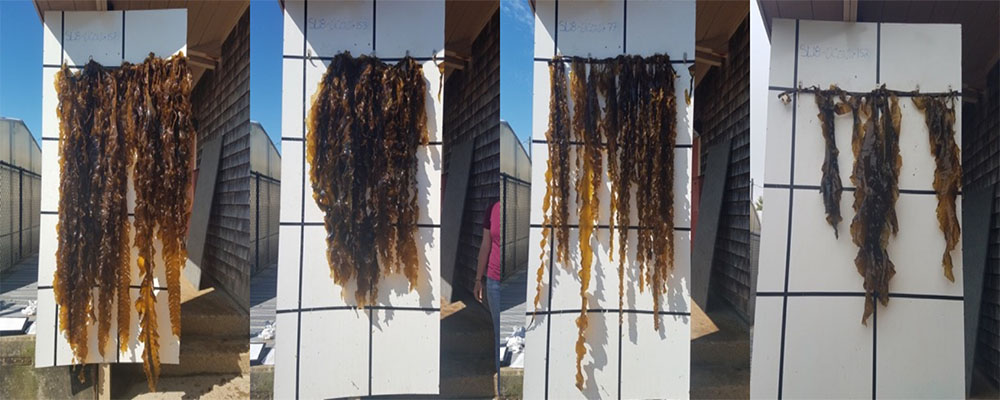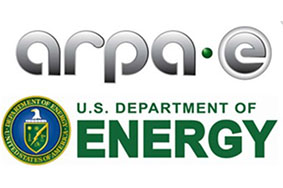MARINER Sugar Kelp Selective Breeding

Examples of yield between 1 meter-long plots of sugar kelp from different genetic families grown in a "common garden"
Scott Lindell is the lead scientist on a ARPA-E Macroalgae Research Inspiring Novel Energy Resources (MARINER) project at WHOI. This project addresses the critical challenge of meeting biofuel and food needs with farmed seaweed for the 10 billion people projected to inhabit the planet by 2050. Seaweed farming avoids the growing competition for fertile land, energy intensive fertilizers, and freshwater resources associated with traditional agriculture.
Lindell and a team of seaweed biologists, geneticists and entrepreneurs are developing a breeding program for sugar kelp, Saccharina latissima, one of the most commercially important species. Using the latest gene sequencing and genomic resources, scientists can accelerate more accurate and efficient selective breeding. The breeding program will build a library of genetic resources associated with traits that produce 20 to 30 percent improvement over wild kelp within 3 years. We expect to develop novel genomic tools that will accelerate the production of improved seaweed while decreasing the need for costly offshore farm evaluations.
MARINER also funds a team of scientists and engineers from the Applied Ocean Physics and Engineering department to develop an autonomous underwater observation system for monitoring large-scale seaweed farms for extended periods of time without human intervention. The WHOI team will outfit an unmanned underwater vehicle with acoustic, optical, and environmental sensors to monitor seaweed growth and health, equipment status, and water column properties, such as nutrient content.
The WHOI-led project teams collaborate with two other MARINER projects aimed at demonstrating the economic feasibility of large-scale offshore seaweed farming with eventual production targets less than $100 per dry metric ton.
The four WHOI awards are among 18 innovative projects that received a total of $22 million in funding from ARPA-E in 2018. Another $20 million dollars is due to be awarded for Phase 2 seaweed farming demonstration projects in 2020.
Funding Agencies

U.S. Department of Energy’s Advanced Research Projects Agency-Energy (ARPA-E).
Partners/Collaborators
Partners in this project include: University of Connecticut-Stamford, which helps WHOI develop the kelp strains and families for breeding; the USDA Agriculture Research Service and Cornell University which apply DNA sequencing and genomic analysis to help direct breeding for important traits; and GreenWave and University of New Hampshire which operate the open ocean farming systems for field trials of the selectively bred families.
Related Links and Files
- King Kelp: Growing a better seaweed to fuel the future
- ARPA-E MARINER Program
- ARPA-E on this project
- Kelp Farming Sees a Rise In Interest On the Cape
- Selectively breeding seaweed
- Is Aquaculture the Solution to World Hunger?
- Sea Vegetable Farming in Our Coastal Ponds (video)
- Regulation and Permitting of Standalone and Co-located Open Ocean Aquaculture Facilities (Book chapter)